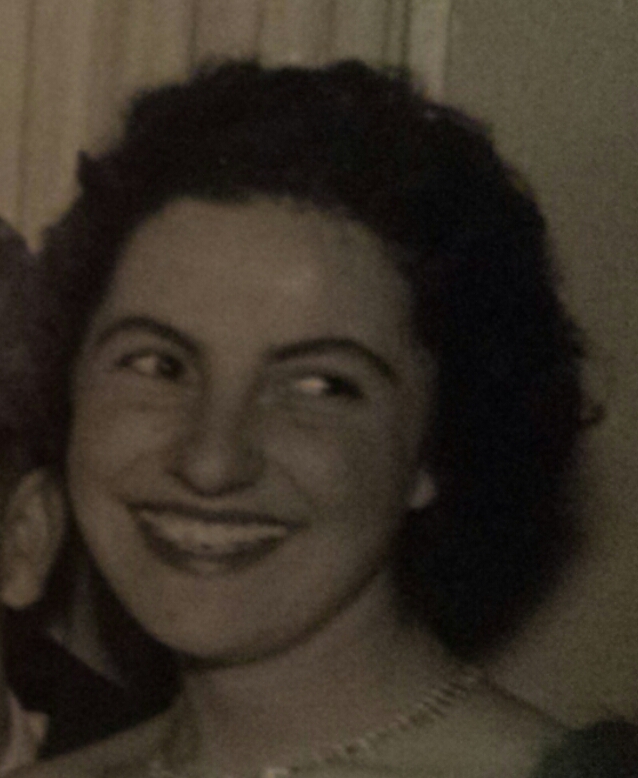Compassion not solutions
I’m a problem solver. In fact, I like to think I’m pretty good at finding solutions. I even felt proud of this part of my character..until this week when I have started to think again.
My mum died 15 years ago on the 19th Jan. There are still moments when I feel flayed by her death and the anniversary of her death is always sore.
I was in bed reading ‘Tiny Beautiful Things: Advice on Love and Life from someone who’s been there’ by Sheryl Strayed. It’s a series of problem page exchanges with Strayed as her alter ego; agony aunt; Sugar.
One boyfriend writes to Sugar to ask how he can help his girlfriend whose mother has died. Sugar’s advice is that there is no help to be had, ‘It is never be OK that our mothers are dead’ (p97) writes Sugar (Strayed’s own mother died when she was a young adult). Sugar tells the boyfriend that all he can do is ‘Get comfortable with being the man who says Oh honey, I’m so sorry for your loss over and over again’ (p98).
The boyfriend felt ‘lame’ because he didn’t know what to do and Sugar tells him ‘It feels lame because we all like to think that we can solve things. It feels insufficient because there is nothing we can actually do to change what’s horribly true’.
How true is that?
How many times do we look for solutions when none are needed or when none are possible?
I was listening to Palmer J Parker talking on a podcast from ‘Insights from the Edge’ from Sounds True. He talks about his own experience of deep clinical depression on 3 occasions in his life.
Palmer J Parker talks about the awfulness of being depressed and having people around him who wanted to offer him solutions. Solutions he said, were their way of pretending to be in control of something they had no control over. Offering solutions is their way of making themselves feel better rather than making him feel better.
The only person who reached Parker in the depth of his depression was his friend Bill. Bill asked to rub Parker’s feet. Parker consented. Every day at 4pm Bill would arrive and rub Parker’s feet, mainly in silence. Sometimes he would acknowledge how Parker seemed to him that day ‘I see you’re struggling today’, but that was it, just silent foot rubbing for half an hour in silence.
Parker describes how this foot rubbing was the only thing that connected to him when he was feeling so dark with depression. Words didn’t help, solutions left him feeling even more of a failure for not helping the solvers feel good that they had solved it.
So many things don’t have to be solved, can’t be solved. Feelings can’t be solved, experiences can’t be solved, loss can’t be solved.
Solving things is our logical, rational brain trying to take control of the uncontrollable so that we feel better, so that we can feel good that we solved it, so that we don’t have to feel ‘lame’ as we watch another person struggle or suffer or feel knowing we can do nothing to make it better.
Offering solutions where none are asked for is Ego’s way of saying ‘look at me, aren’t I the clever one, I can solve this. I can be the superhero who can make everything better. I can fix it, how much better that makes me feel. So much better than feeling inadequate and powerless in the face of your distress or discomfort’.
Offering solutions where none are needed or possible creates armour. It armours the problem solver as they don’t need to feel ‘lame’, they don’t need to feel awkward and powerless in the face of someone else’s discomfort.
It armours the sufferer as they can’t be solved and because they can’t be solved, they feel unseen, their distress can’t be solved so it can’t be seen or accepted. They try to pull it together, to put on a brave face to make the problems solver feel less awkward, less bad.
The minute we have to pretend we are not distressed or upset, we create walls. Walls between us and our own feelings and a wall between ourselves and the problems solver. We pretend to be fixed so that they don’t feel cross or bad that they couldn’t fix you.
Intimacy dies incrementally this way. Each well meant solution another brick in the wall which protects the solver from feeling but also shuts the other person out
I know I jump to solutions sometimes. Sadly, I don’t think I would have done what Bill did and simply shown up and rubbed feet, I think I might have talked.
‘But compassion isn’t about solutions. It’s about giving all the love you’ve got’ says Strayed, as Sugar.
Compassion is when we are brave enough to witness someone’s suffering or discomfort, having the humility to know we can do nothing to make it better; apart from to be there, to stand by the person in pain, to let them know that you will be there with them in that pain no matter what.
I have sat with people who know they are dying and in that situation I have had no choice to surrender to what is. When faced with death, there is nothing to be solved and so I have been able to sit with them.
I find surrendering to what is so hard sometimes. To be in the moment with someone who is suffering and not try and make it better demands that I surrender my ego, my need to please and to fix and to meet person where they are, rather than where I would like them to be.
I have to surrender to the loss of my mum much too young, which is still not OK. There is no solution to be had, all I needed on that morning was compassion and I was lucky enough to get it.
I’m going to be paying attention to when I have the desire to problem solve and I’m going to ask myself it is my business to solve it, or to be compassionate.
- When do you jump in and solve problems?
- How does it make you feel?
- How does that effect the intimacy between you and the other person?
- How do you respond to the idea of surrendering to what the person is feeling or experiencing rather than fixing it?
- If you rewind over the last week, can you think of times when you could have been more compassionate?
- Can you think of times when you needed compassion and someone tried to give you solutions? How did it feel?
Thank you for joining me on this exploration.
Julie
If you enjoyed reading this please share it with friends. You might also be interested in talking to me about coaching , or maybe try some of my online courses (some are free), or treat yourself to a climate protecting pamper with vegan friendly, organic Tropic which supports the planting of forests and education in deprived areas.
Thanks for being here.
Julie
Related Posts
Categories
- Be Here Now (110)
- Education (40)
- Endings (58)
- environment (96)
- Inspiration (111)
- Podcasts and videos (49)
- Psychology and Emotions (147)
- Relationships and Family (150)
- Spirituality (70)
- stories and poems (95)
- Thinking Differently (186)
- Uncategorized (8)
- Well-being (106)
- Women (80)
- Work (42)



